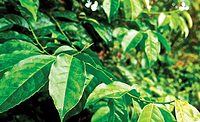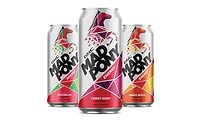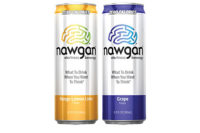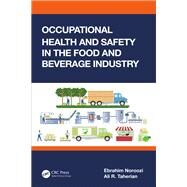Cognitive health ingredients offer short- and long-term benefits






Doctors and nutritionists commonly stress the importance of a balanced diet and exercise for a healthy body, but more research is supporting the importance of a healthy brain. According to the Centers for Disease Control and Prevention (CDC), Atlanta, as many as 5 million Americans suffer from Alzheimer’s disease, a form of dementia that involves parts of the brain that control thought, memory and language and affect a person’s ability to carry out daily activities. According to the CDC, Alzheimer’s disease is one of the Top 10 leading causes of death in the United States.
But whether it’s because of serious concerns such as age-related memory loss or improving day-to-day cognition, ingredient suppliers recognize the concern people have about maintaining or improving their mental cognition and desire to turn to vitamins and supplements for that improvement.
“Cognitive health ingredients can help consumers in a variety of ways, such as increasing mental alertness, providing sustained attention, improving memory function, and decreasing the risk age-related memory loss,” says Jeremy Bartos, senior innovation scientist with Glanbia Nutritionals, Carlsbad, Calif.
Bartos notes that the one thing that all of those benefits have in common is oxidative stress.
“Current research points toward the accumulation of damage resulting from oxidative stress as a major cause of cognitive decline including memory loss,” he says. “Free radicals from both the environment and normal cellular respiration can steal electrons from brain cells, causing permanent damage that can accumulate over time. Antioxidants are helpful in alleviating this damage accumulation.”
Although the CDC says Alzheimer’s is more commonly associated with those ages 60 or older, cognitive health can affect younger consumers as well.
“The beauty of cognitive health ingredients is that they address issues in all ages and demographics, making them universal,” says Benjamin Mamola, co-founder, chairman of the board and chief executive officer of Mycell Technologies, Paramus, N.J.
Because cognitive nutrition ingredients have the ability to span across numerous demographic segments, it allows for more opportunities for consumers to explore different formats to obtain those ingredients.
“There is a need to deliver cognitive-enhancing foods and beverages to all types of consumers looking for healthy products that provide portable, convenient and tasty delivery of nutrients for cognitive performance,” says Cathy Arnold, senior formulation scientist with Fortitech Inc., Schenectady, N.Y.
Although beverages can provide consumers with another delivery system for cognitive ingredients, suppliers note that day-to-day benefits currently are more accepted than long-term benefits.
“Because beverages are traditionally used as a delivery vehicle for short-term benefit, hydration, energy, etc., at this time the majority of cognitive health ingredients being utilized trend along the same lines of the short-term, immediate benefits,” Glanbia’s Bartos says. “This means ingredients primarily [are] affecting mental acuity, focus and neurotransmission rather than preventing damage that can lead to cognitive decline.”
Mindful formulations
The demographic a beverage-maker is looking to target helps determine which cognitive health ingredients would be the most ideal, experts note.
“For example, companies looking to target prenatal or infant cognitive health can focus on ingredients shown to assist with proper brain and neural development, such as omega-3s and choline,” Bartos says. “Those looking to focus on the elderly can highlight the effects of ingredients whose benefits lie with memory enhancement. In a normal adult population, a focus on long-term cognitive health to stave off mental decline can be marketed with powerful antioxidants such as pterostilbene or neurological precursors such as citicoline. And those looking at short-term cognitive health can point to vasodilators for increased blood flow [to provide] more oxygen to the brain and compounds such as caffeine for adrenaline production and mental acuity.”
Glanbia’s ingredient offerings for cognitive health include choline, citicoline, pterostilbene, l-carnitine and vitamin A, Bartos notes.
Offering a range of nutrient platforms, The Wright Group, Crowley, La., works with its clients to create product positioning that will succeed in the marketplace, says Sam Wright, chief executive officer of The Wright Group.
“Common ingredients used in these cognitive health nutrient packages include caffeine, B vitamins, citicoline (Kyowa Hakko’s Cognizin), beta-hydroxymethyl butyrate (HMB), [docosahexaenoic acid] (DHA) from algae or fish oil, dimethylaminoethanol (DMAE), ginkgo biloba, huperazine and phospholipids such as phosphatidyl choline and serine,” Wright says.
He adds that the company advises to put these ingredients in stable, technically well-performing and good-tasting formats. “We can microencapsulate, spray dry, micronize, solubilize and blend the chosen ingredients, depending on what performance parameters are necessary,” Wright explains.
By utilizing these ingredients and platforms, beverage-makers have a number of opportunities to offer consumers cognitive health products, Wright says.
In addition to vitamin A, B vitamins, antioxidants, choline, citicoline, omega-3 fatty acids and ginkgo biloba, Fortitech receives requests for vitamin C, iron, folate, tocotrienols, phosphatidylserine and botanicals such as ginseng, curcumin and grape seed extract to address cognitive function, Arnold says.
“We are seeing many requests for these ingredients in juice and dairy-based beverages,” she adds. “In my opinion, dairy-based beverages are ideal because of the health halo that is already in place in a consumer’s mind with dairy products. For those people that are lactose intolerant, these ingredients can also work in a soy or almond type of beverage.”
Although Arnold recognizes the benefit these fortified products can provide to consumers, she stresses that it is important to keep taste in mind in order to garner widespread acceptance.
“No matter how good your product might be from a nutritional point of view, if it does not immediately taste good, then the product is set for failure right from the start,” she says.
And similar to other functional formulations, natural trends can influence the ingredients that beverage-makers might want to use in their products.
Blue California, Rancho Santa Margarita, Calif., offers its natural l-theanine, which is branded as L-TeaActive.
“It can be taken in the morning to improve focus and concentration, reduce stress and anxiety without drowsiness, and, amazingly, it also helps you sleep more soundly, giving your body and mind the rest it needs to recover and re-energize,” says Cecilia McCollum, executive vice president of Blue California. “Taken daily, it can help you start a healthy chain of events: less stress; [increased] focus and concentration; improved productivity; better mood; restful sleep; more energy; and [good] disposition in the morning.”
She adds that the natural ingredient can safely improve brain function without negative side effects. Because L-TeaActive is water-soluble and has no color, taste or odor, it can be used in multiple beverage formats, McCollum says.
Antioxidant compounds also have been linked to positive benefits in protection of some brain functions, says Ernesto Hernandez, director of process development of Omega Protein Corp., Houston.
As part of normal cellular function, oxidation reactions happen continuously in the body; however, excessive production of certain free radicals could affect the development of certain disease conditions, Hernandez explains. Unregulated oxidative stress can lead to production of reactive oxygen species, which has been linked to some clinical disorders such as atherosclerosis, ischemia-reperfusion injury, rheumatoid arthritis, cancer, stroke, cataracts, Parkinson’s disease and Alzheimer’s disease, he adds.
“Several studies suggest that antioxidants can help prevent this oxidative damage,” Hernandez says. “The role of phytochemical antioxidants such as flavonoids in the prevention of lipid peroxidation and free radical production that can damage neurons and cellular genetic matter also [is] being documented. Fruit, vegetables and certain botanicals have been identified as important sources of these phenolic antioxidants. Furthermore, these bioactive phenolic compounds are also now supplied to the consumer in more convenient forms as concentrates and extracts.”
Cyvex Nutrition, a subsidiary of Omega Protein, offers a vast portfolio of botanical antioxidant ingredients that are soluble and available for beverage applications, he adds.
Fatty acids
In Rockville, Md.-based Packaged Facts’ report titled “The Global Market in EPA/DHA Omega-3 Products,” it projects that global consumer spending on EPA/DHA-fortified products will increase from $25.6 billion in 2011 to $34.7 billion in 2016.
“The beneficial effects of omega-3 fats in cardiovascular disease prevention and cognitive function development and improvement have been widely documented through numerous clinical studies,” Omega Protein Corp.’s Hernandez says. “This is reflected by the market growth of omega-3 fortified foods and dietary supplements.”
He adds that Cyvex Nutrition offers marine oils such as its OmegaActive omega-3 product line for use in dietary supplements and its OmegaPure product line, which is formulated specifically for food and beverage applications.
“The addition of omega-3s to foods has seen the highest increase in the last five years, especially in beverages, dairy products and baked goods,” Hernandez says.
Recognizing omega-3s’ potential in the beverage space, Oceans Omega, a subsidiary of Mycell Technologies, is working to increase the ingredient’s scope.
“When it comes to omega-3 fatty acids, the only beverage classes which have been fortified with omega-3 in the past have been orange juice and milk products,” Mycell Technologies’ Mamola says. “This limited scope of products is due to the technical limitations of incorporating omega-3 fatty acids into beverages because of their oxidative instability. At Oceans Omega, we specifically targeted enhanced waters, carbonated products, sparkling waters, seltzers and other challenging beverage categories.
“We focused on these products in order to provide omega-3 fortification in beverage categories which previously exhibited technical limitations,” he continues. “We also were aware that beverage companies hadn’t been able to achieve the required stability [and] therefore, differentiat[ed] ourselves in the delivery of omega-3 fatty acids.” BI
Looking for a reprint of this article?
From high-res PDFs to custom plaques, order your copy today!










